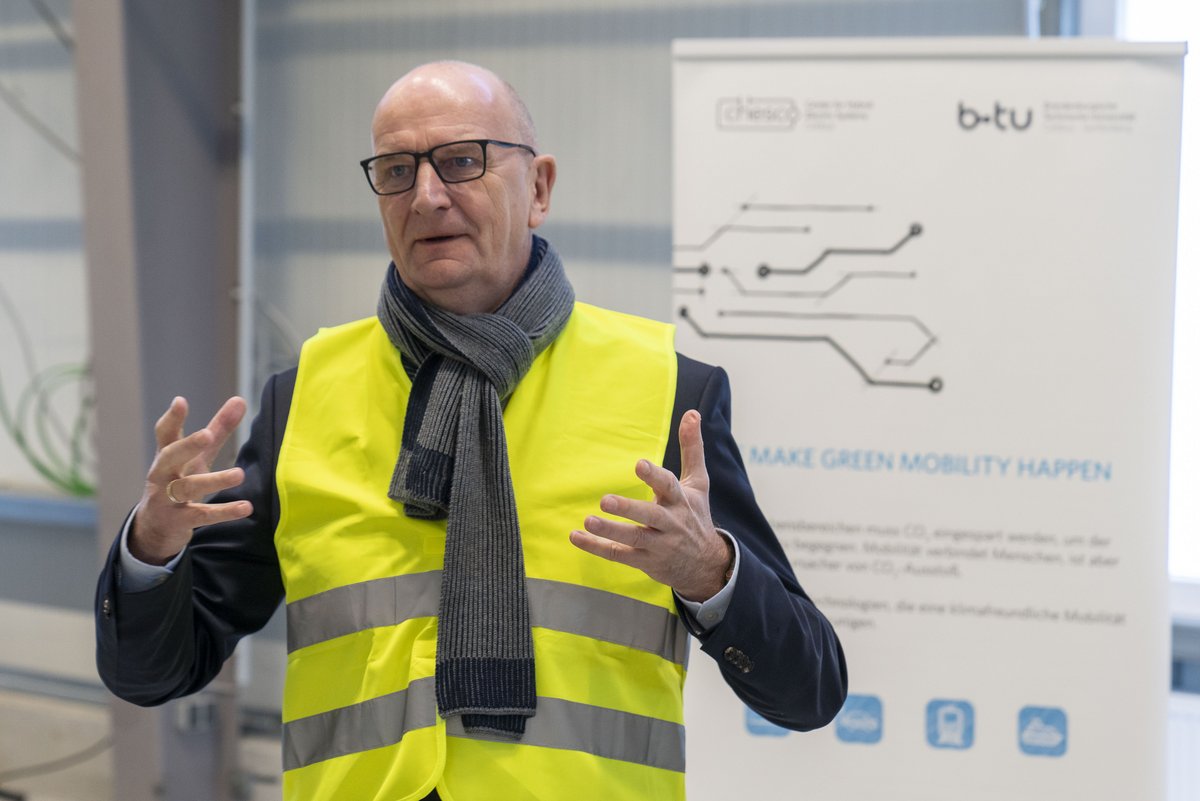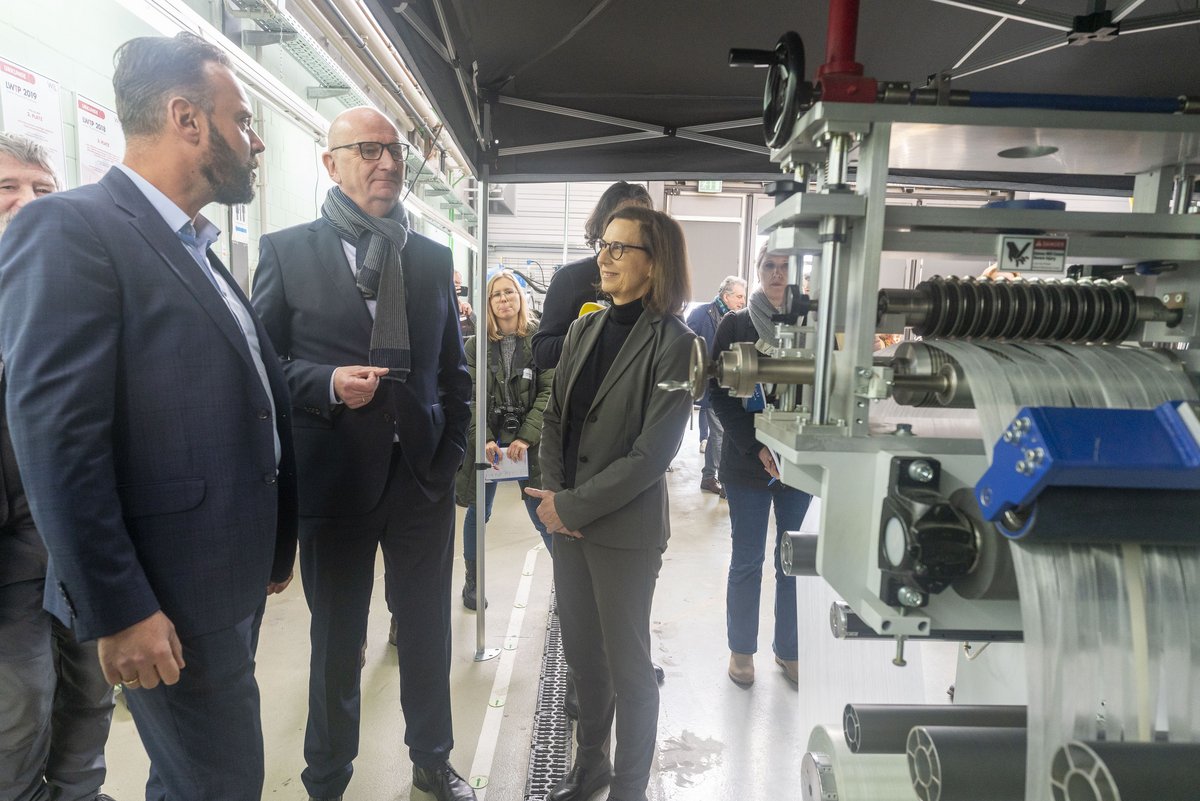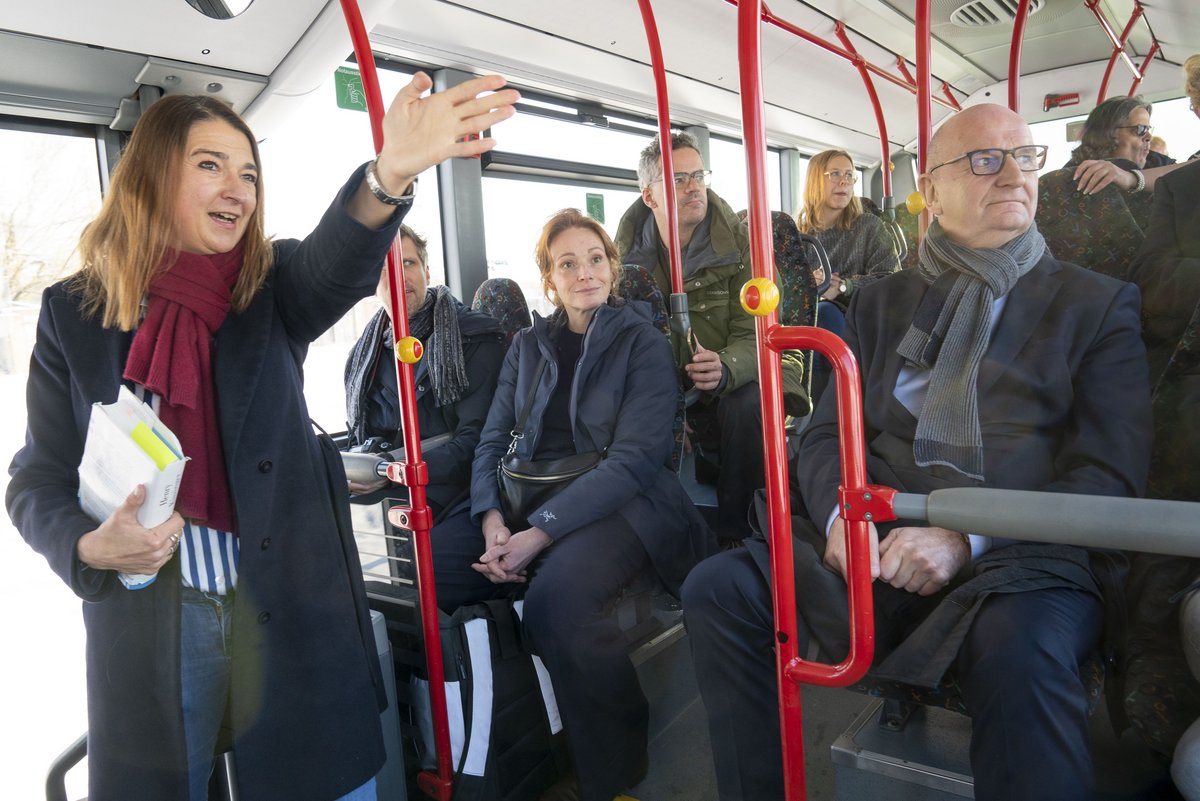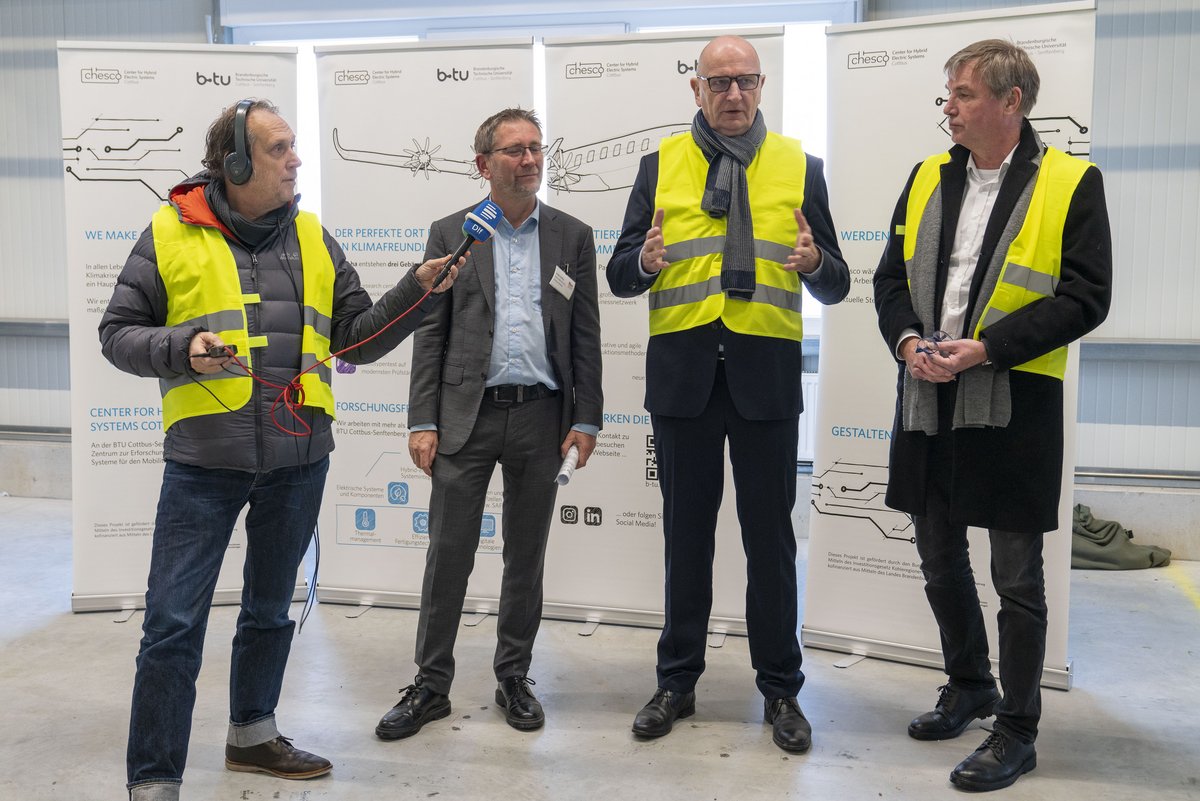Beacons of structural change
Lusatia is a region undergoing change and the Brandenburg University of Technology Cottbus-Senftenberg (BTU) is actively shaping this change through excellent research and clever Transfer of Knowledge and Technology. Several applied research projects have already been developed in cooperation with non-university research institutions and companies. Three of these projects - SpreeTec neXt, Lausitz Science Park and chesco - were visited by a delegation led by Brandenburg's Minister President Dr. Dietmar Woidke, Lusatia Commissioner Dr. Klaus Freytag and Heiko Jahn, Manager of Wirtschaftsregion Lausitz GmbH, as well as interested journalists on 30 November 2023.
Dr. Dietmar Woidke: "With the strength of the entire region and, of course, with great support from the federal government, we have managed to get projects off the ground in a short space of time that will lead Lusatia into a secure future. With new economic settlements in Cottbus, Guben, Schwarze Pumpe, Schwarzheide, Lübbenau and other locations, we are creating new, well-paid industrial jobs. But there is more to it than that: we are combining science, research and business to bring new, modern value creation and innovation to Lusatia. We bring growth, prosperity and security together."
"The BTU offers ideal conditions for joint research into innovative solutions for the major challenges of our future," said BTU President Prof. Dr. Gesine Grande on the sidelines of the visit. "The three projects SpreeTec neXt, Lausitz Science Park and chesco are outstanding examples of interdisciplinary cooperation projects that are developing at our university. Together with its partners from science, business and society, BTU is thus contributing to a successful and sustainable transformation of the region."
SpreeTec neXt - green energy technology from Lusatia
One stop on the Minister President's tour was the SpreeTec neXt workshop, where intensive research is being carried out into green energy technology. Decentralized energy supply is a decisive and promising area of technology for realizing structural change in Lusatia. This also requires the production of advanced, highly efficient components and systems for future energy technology, explained Prof. Dr.-Ing. Holger Seidlitz, Project Manager and Head of the BTU Chairs of Polymer-based Lightweight Construction and Joining and Welding Technology as well as the Polymeric Materials and Composites PYCO research area at the Fraunhofer Institute for Applied Polymer Research IAP.
Lausitz Science Park - Shaping the future with energy
The delegation then embarked on a journey through the future innovation landscape of the Lausitz Science Park, one of the outstanding structural development projects. Director Ariane Derks described the vision and mission of the science and technology location, which will be created over the next few years under the leadership of BTU on the north-western outskirts of Cottbus with international appeal and relevance for Germany. At the heart of the extensive industrial and research settlement project are major subject areas that are based on the BTU's four profile lines: "Energy transition and decarbonization", "Health and life sciences", "Global change and transformation processes" and "Artificial intelligence and sensor technology". These combine science and business as key areas of innovation. An operating company is currently being set up that will be responsible for the site management of the Lausitz Science Park. The aim is to establish it in the first half of 2024.
Center for Hybrid Electric Systems Cottbus (chesco) - climate-friendly mobility
At the end of the BTU tour, Woidke, Freytag and Jahn paid a visit to the Center for Hybrid Electric Systems Cottbus (chesco). Manager of chesco GmbH Heiko Witte gave a tour of the center, where research is being conducted into alternative drive systems for emission-free mobility of the future and components and prototypes are being developed, manufactured and tested. The chesco research factory with a production area consisting of over 100 machines, innovative testing and digitalization technologies and state-of-the-art project rooms for collaboration with partners is currently being set up as part of the taf "Transfer of agile manufacturing methods" project. The first transfer projects on innovative production methods with companies from the region have been launched. In addition, the first research contracts for the aviation industry are being processed. For example, the AGIL research project is developing modern manufacturing technologies and process chains for components of electric aircraft engines.




